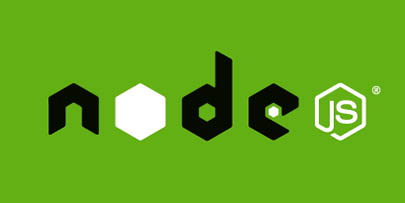How To Install Node.js on Rocky Linux 9

In this tutorial, we will show you how to install Node.js on Rocky Linux 9. For those of you who didn’t know, Node.js is a free, and open-source JavaScript runtime built on Chrome’s V8 JavaScript engine used to build scalable network applications. Node.js is an ideal platform for building data-intensive real-time applications across distributed devices. With its wide range of features, Node.js provides developers with everything they need to build high-performance network applications.
This article assumes you have at least basic knowledge of Linux, know how to use the shell, and most importantly, you host your site on your own VPS. The installation is quite simple and assumes you are running in the root account, if not you may need to add ‘sudo‘ to the commands to get root privileges. I will show you the step-by-step installation of the Node.js JavaScript runtime environment on Rocky Linux. 9.
Prerequisites
- A server running one of the following operating systems: Rocky Linux 9.
- It’s recommended that you use a fresh OS install to prevent any potential issues.
- SSH access to the server (or just open Terminal if you’re on a desktop).
- A
non-root sudo useror access to theroot user. We recommend acting as anon-root sudo user, however, as you can harm your system if you’re not careful when acting as the root.
Install Node.js on Rocky Linux 9
Step 1. The first step is to update your system to the latest version of the package list. To do so, run the following commands:
sudo dnf check-update sudo dnf install dnf-utils
Step 2. Installing Node.js on Rocky Linux 9.
- Install Node.js Using NodeSource Repository.
By default, Node.js is not available on Rocky Linux 9 base repository. Now run the following command below to add the NodeSource repository to your system:
curl -sL https://rpm.nodesource.com/setup_16.x | bash -
Next, install the latest Node.js version with the following command:
sudo dnf install nodejs
Verify the installed Node.js version using the command:
node -v
To verify the NPM version, run the following command:
npm -v
- Install Node.js from Rocky Linux AppStream Repository.
Let’s see a list of all available Node.js versions using the following command:
sudo dnf module list nodejs
Output:
[root@idroot ~]# sudo dnf module list nodejs Last metadata expiration check: 4:07:57 ago on Thu 13 Jul 2022 16:46:13 PM EDT. Rocky Linux 9 - AppStream Name Stream Profiles Summary nodejs 12 common [d], development, minimal, s2i Javascript runtime nodejs 14 common [d], development, minimal, s2i Javascript runtime nodejs 16 [d] common [d], development, minimal, s2i Javascript runtime Hint: [d]efault, [e]nabled, [x]disabled, [i]nstalled
Now we install the Node.js version 16 using the following command:
sudo dnf module install nodejs:16
Once the installation is complete, execute the following command to verify the installation:
node --version npm --version
Congratulations! You have successfully installed Node.js. Thanks for using this tutorial for installing the Node.js JavaScript runtime environment on your Rocky Linux 9 system. For additional help or useful information, we recommend you check the official Node.js website.